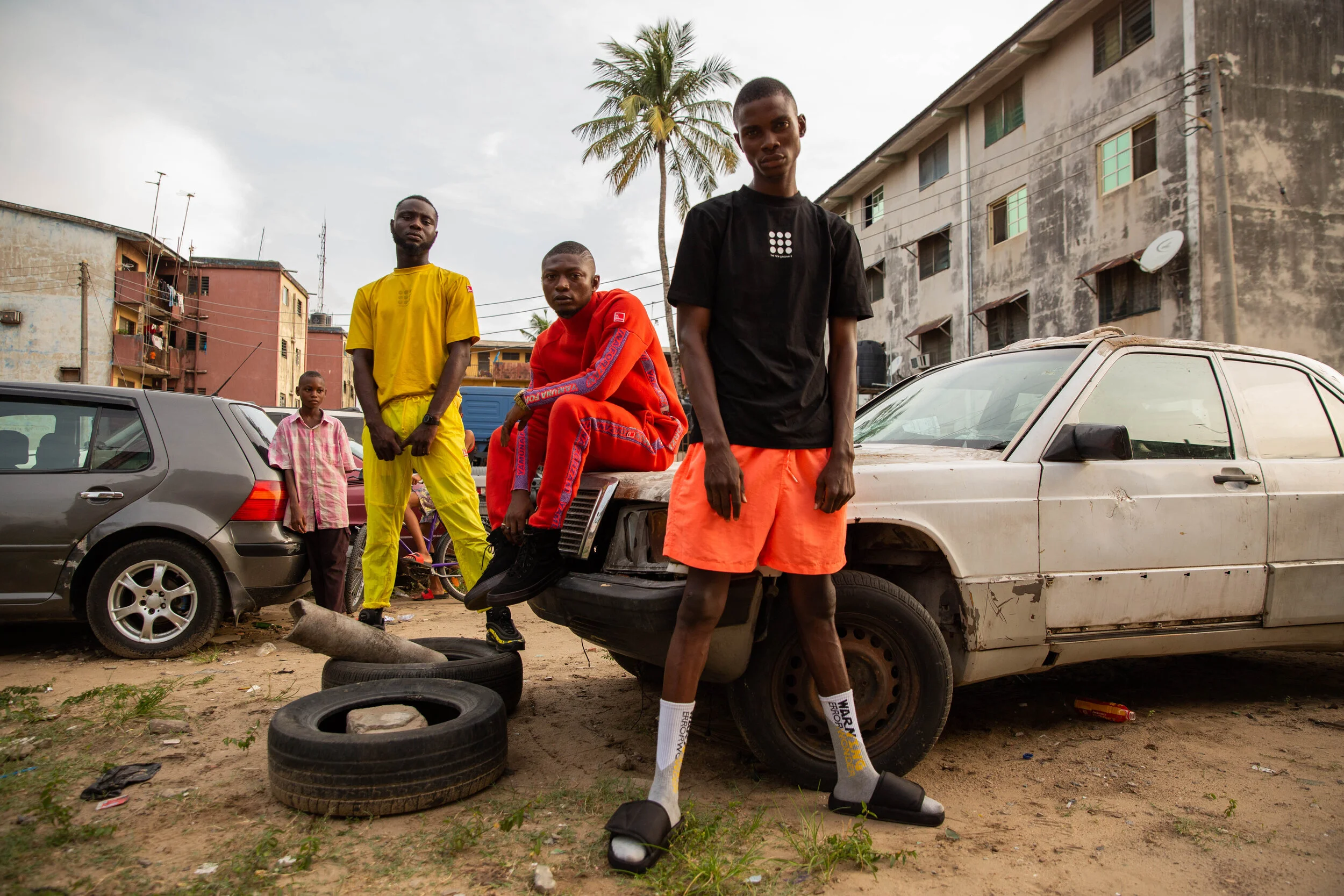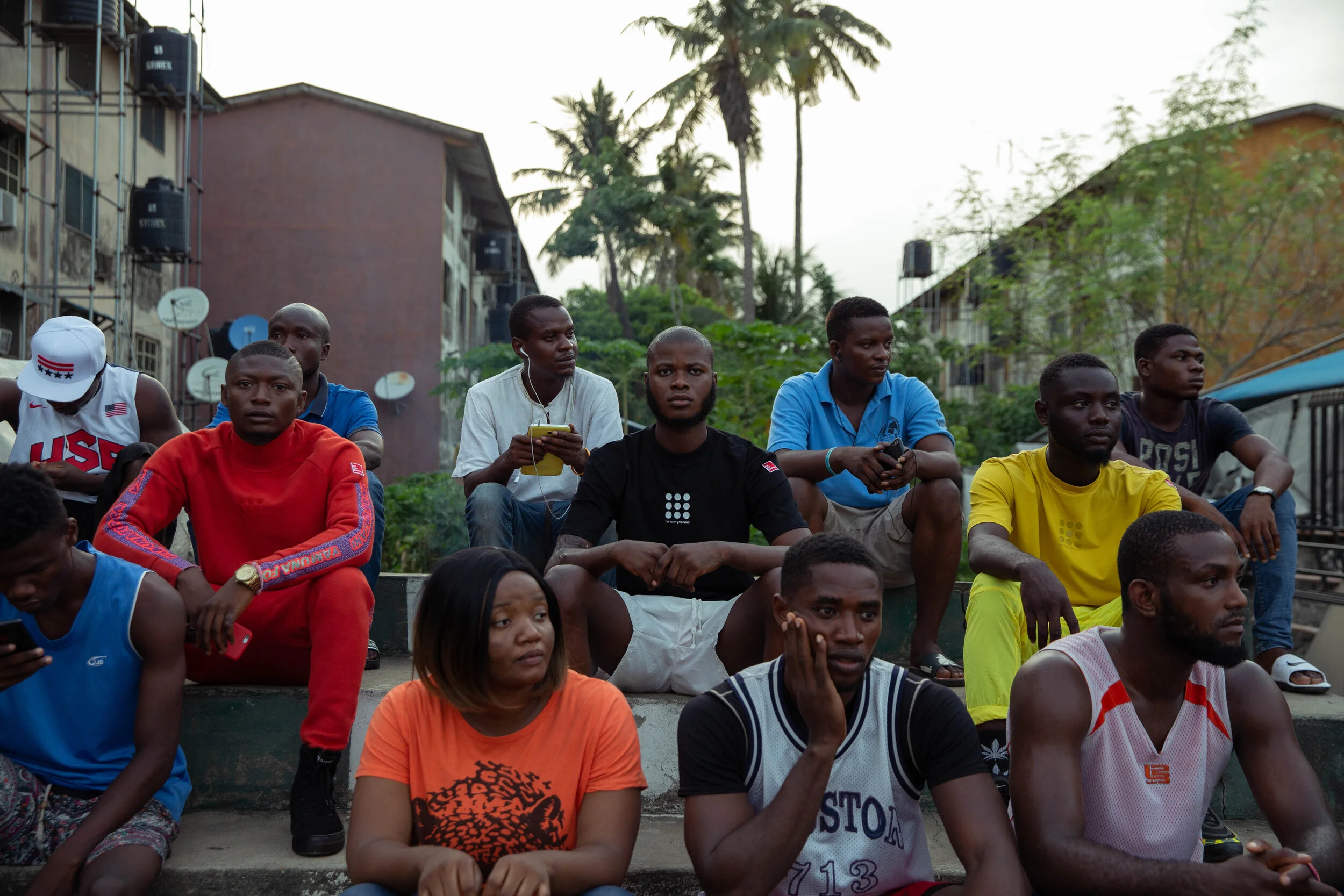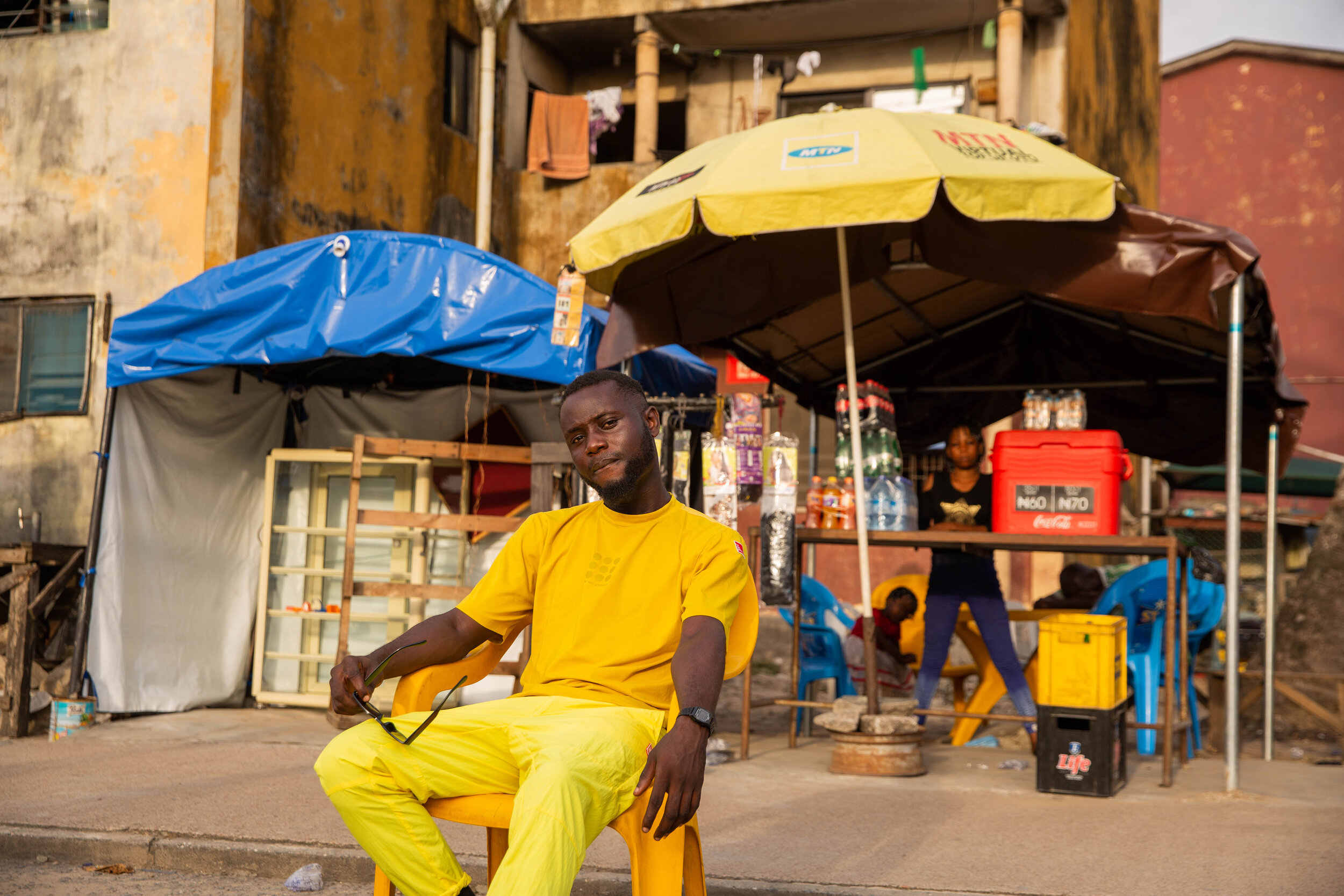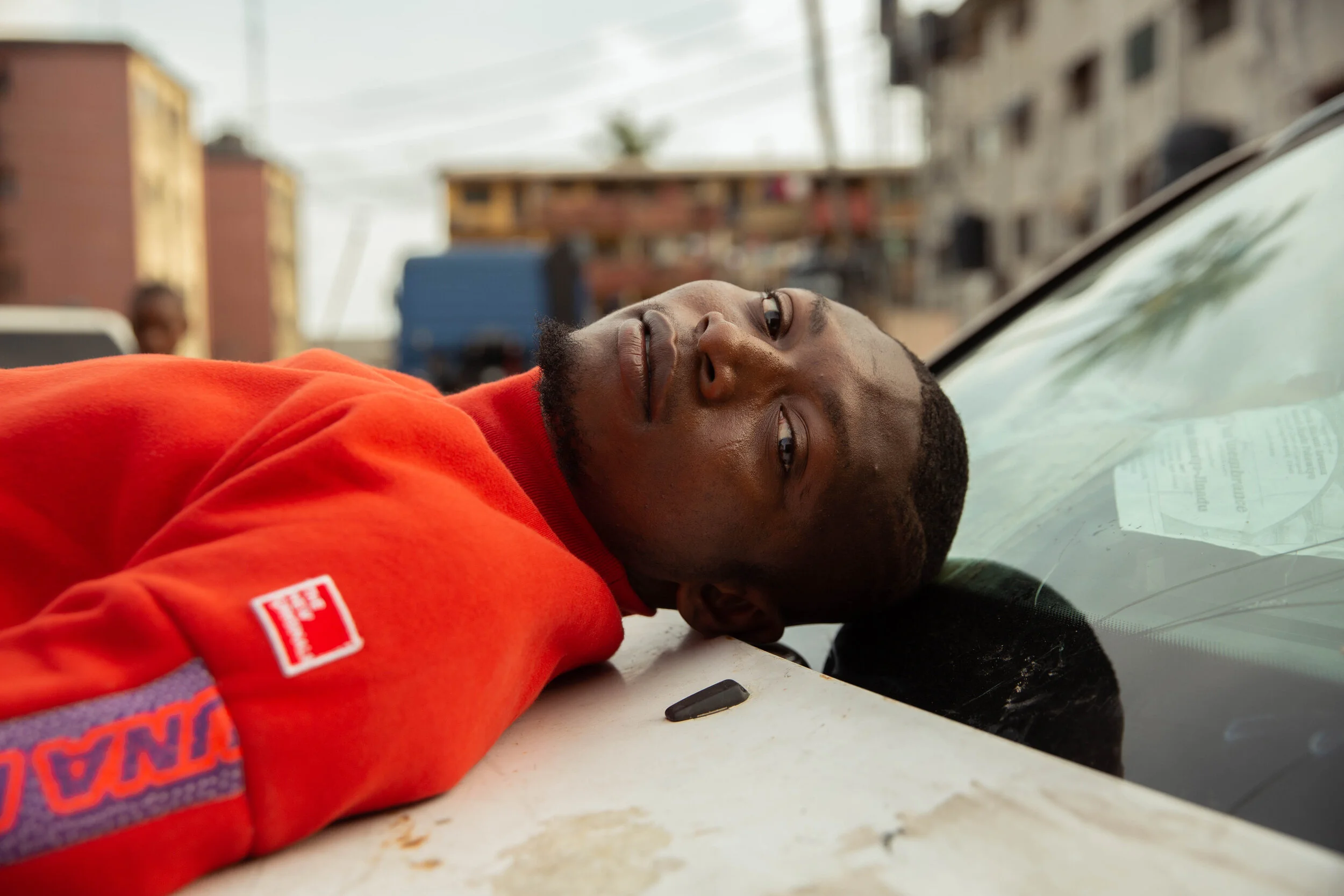Searching for Afrobeats in Festac Town
Nigerian popular music is taking over the world. Worldwide hit charts are filled with a diversity of songs by Nigerian artists. Music is, and has been, one of Nigeria’s largest export products. Those that are doing research on Nigerian music soon end up, or started, in Festac- an old town on the mainland of Lagos.
Festac once was the epicentre of culture in Lagos in 1977, when the Second World African Festival of Arts and Culture was organized there. The town is actually built for this festival. After the festival Festac turned into a residential area. In the early 2000s, when Afrobeats started to become popular, it was the track ‘African Queen’ by 2Face which made international furore: to many it was the track that put Afrobeats on the (international) map. 2Face grew up in Festac.
Festac was because of this musical and cultural background on our ‘to visit’ list. Photographer Coco Olakunle and I are interested in creative industries in Lagos and wanted to explore Festac’s creativity and culture. We therefore went to Festac, together with Adeleke (better known as Pyc) an aspiring A&R. Adeleke brought along his little brother, Rhymez, who tells us that he’s into music as well. “Rhymez is getting into music, but he’s not an artist yet” Adeleke replies when we ask Rhymez about his art. Rhymez keeps quiet and listens to our conversation.
Festac town does it’s name right: the vibe feels cultural in a way. It has a relaxed vibe, compared to other Lagosian neighbourhoods. It’s quieter, buildings are smaller and streets narrow. The people in the streets are chatting to one another and kids are playing outside. Less noise in traffic and drivers seem to be more patient.
Adeleke does not only shows us the neighbourhood, he also introduces us to his artists. We first pick up Bablow, an upcoming musician that has been making music for over a decade. We drive around and start a conversation about his art “Music is not only about shaking your bum bum” he says. His grandfather got him into music. The old man was playing him a lot of the traditional Nigerian music like Akpala and Highlife “He told me that I should use music as a prophecy, we artists can change lives with our music”. Bablow’s goal is to enrich people's lives with a diverse sound of African music. He does music for a living “but not yet fully paid”. In the talk he comes across as eager; music is his passion and the only thing he can see himself doing, even when he’s not making money with his music, yet...
Bablow by Coco Olakunle
We park the car, walk around the neighbourhood and go to a basketball field where we meet Kokopin, a hype man born and raised in Festac. “I want to become an artist, but before I have that ginger, I hype other artists. Ycee [a well-known Nigerian musician] is a friend of mine, so I hype his shows”. We talk about the diversity of artists that are coming from Festac. “I don’t think Festac is special, it’s an estate. Everybody knows everybody” Festac has four gates through which you can enter and leave the town “which turns Festac in some kind of a community”. We walk around the field, Kokopin greets people; he’s sure does know a lot of people. “What makes Festac a cultural hotspot is the connectedness of the people. If a producer has a beat and tells it to some people, soon the whole town knows it and a rapper will walk up to you for a collaboration on that beat”. Kokopin is like Bablow dedicating his time to music. The main difference between the two is the financial bit: Kokopin does earn money through music. “Sometimes I organise events where local people perform, then I handle a gate fee so that we earn some money too”.
Whilst talking people gather around us and try to get Kokopin’s attention. Some of crack silly jokes, some smoke weed and a small crowd is watching the boys play basketball. Kokopin brushes off the crowd politely and we talk about the love that Kokopin gets “When you meet me, and you hear I’m from Festac, you just have to give me respect”. He explains that people from Festac help each other “If I have a show, if you come from Festac- you’ll get a stage, I don't have to know you. Same goes for an artist like 2Face, if you tell him you’re from Festac, he’ll treat you special”.
Kokopin by Coco Olakunle
The sun sets and Adeleke tells us we should head back home. The match is finished and most of the people left a while ago. Some drunkard is trying to start a conversation with us, but Adeleke directs us to the car. In the car we talk about his goals as an A&R. “I have love for music, I work with the producers and artists in the studio. I know how a sound should go, so I help them to put their songs out there”. Adeleke works with five guys at the moment. His goal is to be the one that was the first to listen to all the A-list Nigerian artists; he wants to be a top-notch A&R. “Before I work with anyone, I have to get to know the person better. But three minutes in the conversation I already know where I’m going. I’m very picky, whoever I work with, will never doubt anything I say to them”.
Adeleke is a real goal-getter. When he saw our previous feature on Wafflesncream, the Lagosian skate-crew, he reached out to Coco to talk about the possibilities of featuring his artists to create more publicity for them. Not long after that he set up a date for us to come around to meet them. He came up with the locations we should check out. He also made sure the artists were there, on time. Adeleke might not make money with his services yet, but he is dedicated and talks passionate about his work on our way back. A&R is definitely his passion. In the Nigerian music industry, which is not as laid out as a the American or European industry, it is not easy to make a living out of music. Adeleke is definitely trying and we hope Adeleke will make it…
Models: Omobowale Akinbode, Yusuf Ganiu, Adeleke Riliwan Adebayo and Wali Adeleke.






